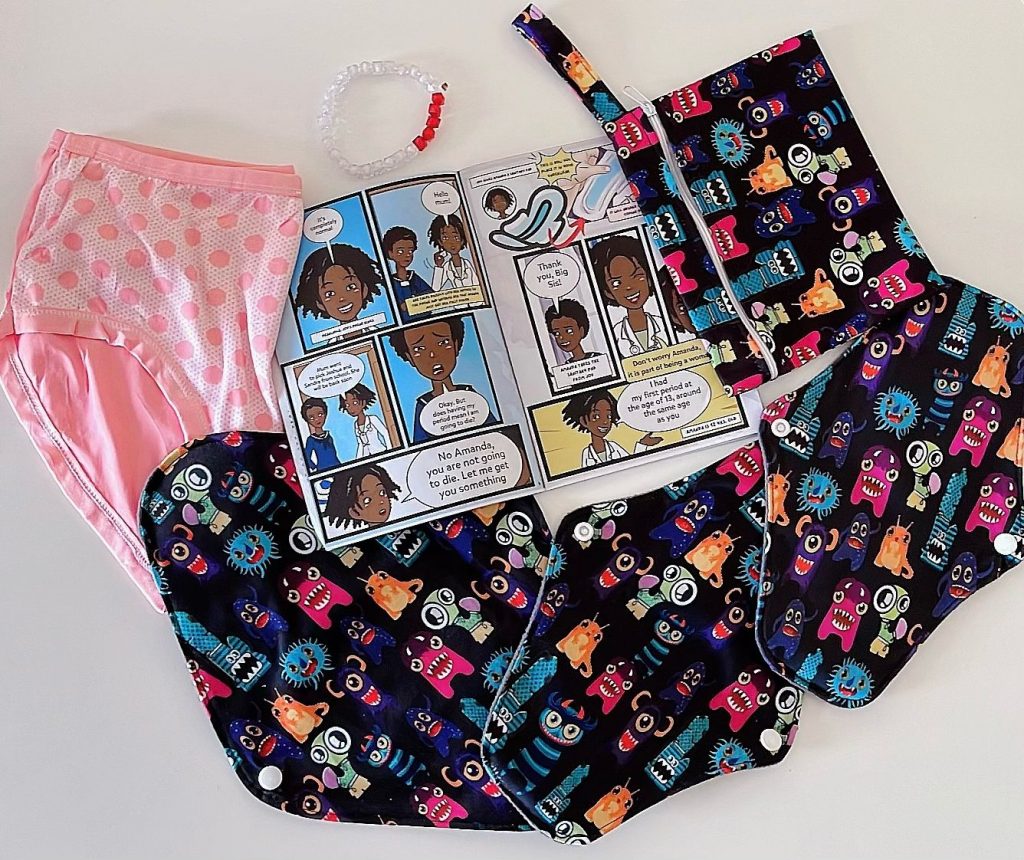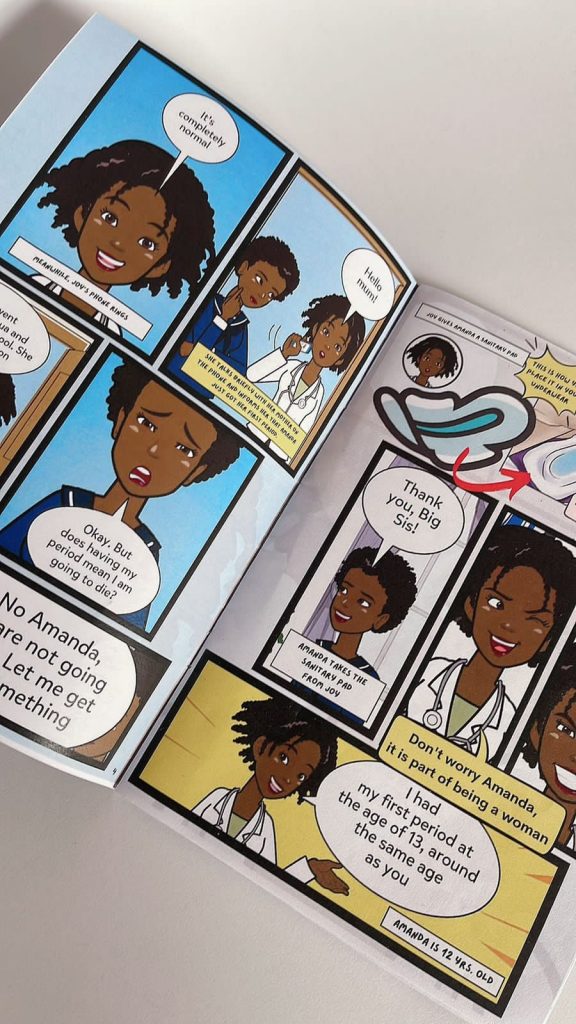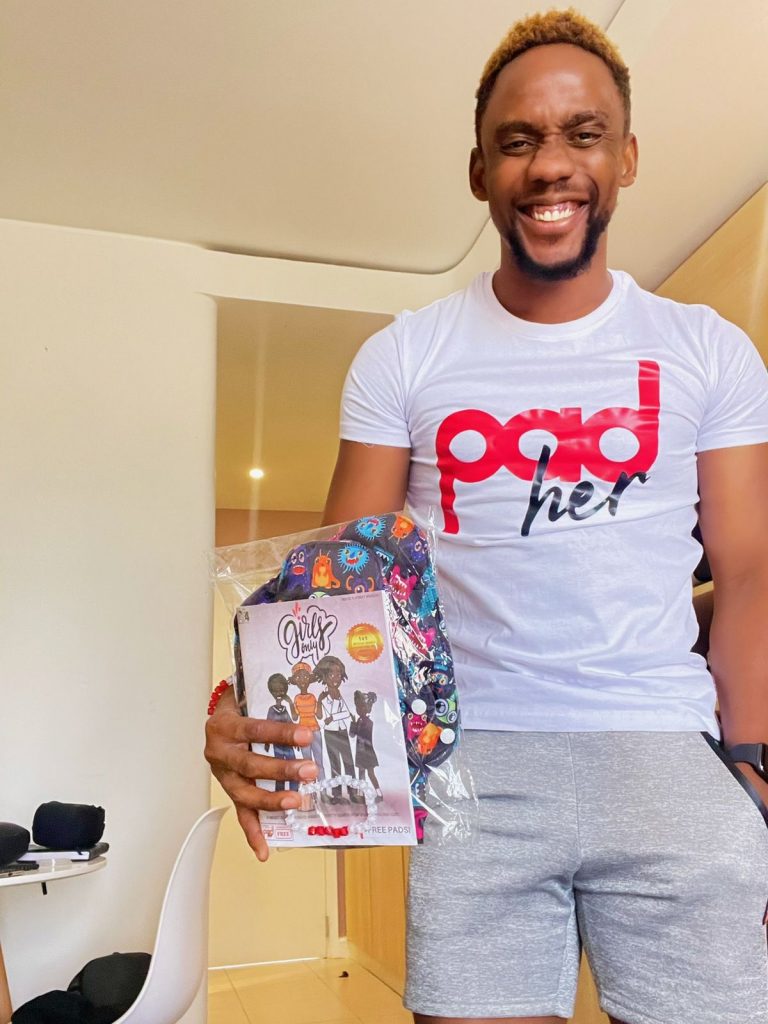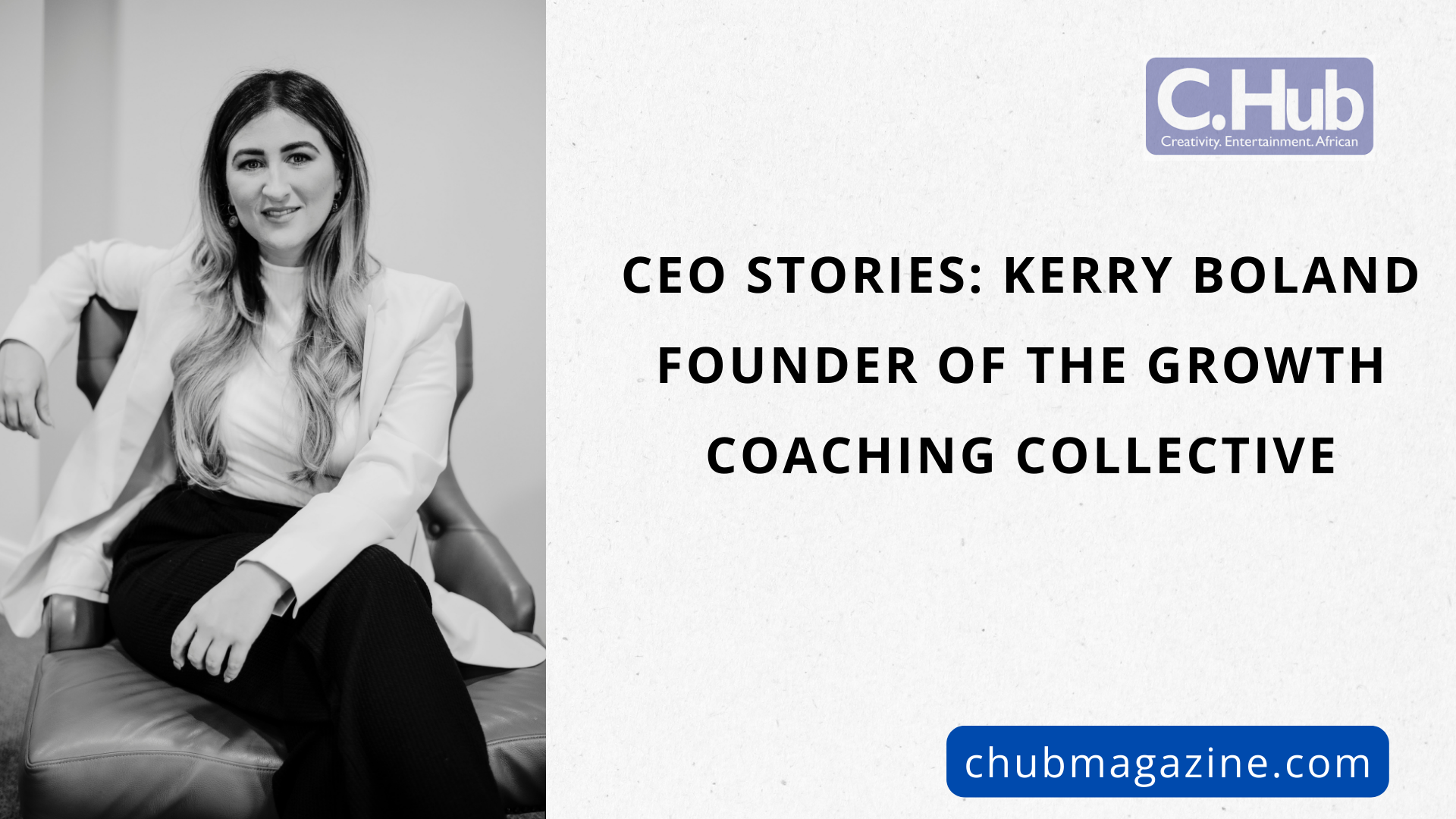
- Due to financial barriers, stigma, and a lack of period education, many girls have been forced into period poverty (lack of access to menstrual hygiene products and education), and Covid-19 has worsened the problem.
- One in 10 girls in Africa miss school during their periods to avoid the embarrassment of bleeding through their uniforms. Some girls use unhygienic items for pads, such as cloth rags, socks, leaves, or dry grass, which can lead to infections.
- Many girls drop out of school completely once they begin menstruating.

In a bid to combat this phenomenon, a Nigerian entrepreneur, Chika Nwaogu, co-founder and executive director of PadHer, a Lagos-based women-led nonprofit is making it free, fun, easy, and comfortable teaching young African school girls from under-served communities about periods and puberty using comic books.
PadHer includes with their comic books three free reusable sanitary pads, one pair of underwear, and a free unique period bracelet to help young schoolgirls track where they are in their cycle and be ready with a pad in their school bag.
PadHer operates as a non-profit organization and as a social enterprise. As a non-profit, PadHer provides innovative ways to educate young African schoolgirls in under-served communities on periods and puberty while making sanitary pads free and accessible.
On the other hand, as a social enterprise, PadHer manufactures and sells high-quality, low-cost reusable sanitary pads and uses the profit made from selling them to help fight period poverty in Africa. For every pad PadHer sells, it donates a free reusable sanitary pad to a young African schoolgirl who can not afford one.
PadHer is also making period education inclusive by donating one comic book to a young African schoolgirl in an under-served community for every comic book it sells.

PadHer’s, vision is to “Build An Africa Free Of Period Poverty,” has already published two issues on periods and puberty and has reached over 200 young schoolgirls in Africa with its PadHer Schoolgirl Kit.
PadHer By Chika Nwogu

According to Chika Nwaogu, “Many young girls did not know what was happening when they got their first period and were unprepared. These girls do not even know why they bleed and how it happens, and these can sometimes make it a scary experience. Because of this, I set out to look for innovative ways to talk about periods to young girls for the first time. Due to the digital divide and the low penetration of technology in under-served communities, comic books were the best fit as they are both fun and engaging to young schoolgirls, and at the same time, do not require access to technology.”
“Lack of knowledge about periods can lead to harmful beliefs and discrimination. It can also prevent girls from participating in regular childhood activities. Young girls are denied the opportunity to learn about periods and develop healthy behaviors due to stigma, taboos, and myths. Girls Only, our period and puberty comic book series, was created to make teaching young school girls about periods and puberty free, fun, easy, and comfortable.” Chika continues.













Comment